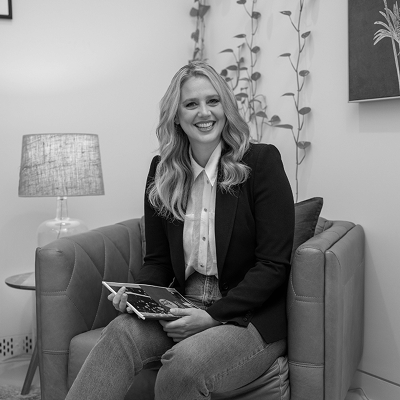
ASKING FOR A FRIEND
Do you have any tips for overcoming procrastination?
ASKING FOR A FRIEND - QUESTION
Procrastination getting the better of you? Psychologist Tara Hurster, founder of The TARA Clinic, shares her practical strategies for overcoming procrastination with host Andy Wright from Never Not Creative. From creating work totems to setting up productive environments, discover why procrastination happens and learn simple techniques that actually work. Perfect for anyone struggling to stay focused, especially when working from home or in flexible environments.
Breaking the Procrastination Loop: Simple Strategies That Actually Work
Procrastination has a sneaky way of making us feel stuck, especially when we know exactly what we need to do but somehow can't bring ourselves to do it. The good news? Understanding why it happens and having practical tools can help you break free from the cycle.
This question was answered by Tara Hurster, psychologist and founder of The TARA Clinic, alongside host Andy Wright, founder of Never Not Creative. Tara's expertise in mental health and practical psychology offers valuable insights into overcoming procrastination, particularly for those working from home or in flexible environments.
Know Yourself and Your Environment
The first step in overcoming procrastination is understanding how your environment affects your mindset. As Tara explains, "When you know yourself and you know that your environment is impactful on where your head is at, then that's a really great place to start."
She shares her own experience: "I would do more of my university learning and assignments at the uni library than I would at home. Because when I was at the uni library, my brain was on this as a focus." The shift to working from home during lockdown completely changed her productivity patterns, highlighting how crucial environment can be.
If you find yourself procrastinating more in certain spaces, it's not a character flaw. It's simply your brain responding to environmental cues that signal relaxation rather than focus.
Create a Work Totem
One of Tara's most practical suggestions is having a "totem" that clearly defines when you're at work and when you're not. This physical cue helps your brain switch between modes.
"Have something that clearly defines when you're at work and when you're not at work," Tara suggests. Her examples include wearing a watch during work hours and removing it when finished, or having specific earrings that signal work mode. "Have a certain set of earrings, that when you're wearing earrings, you're at work. When you're not wearing earrings, you're not at work."
Even Andy mentions his own version: "I do think very carefully about the caps I wear for different situations. This is very much a asking for a friend and never not creative cap for sure."
Set Up a Productive Environment
Your physical workspace plays a huge role in beating procrastination. Tara emphasises the importance of "setting up a really productive environment" rather than just hoping willpower will carry you through.
This might mean switching off your personal phone, deactivating notifications, or "actually setting up a desk rather than just sitting on your bed." These small changes send clear signals to your brain that it's time to focus.
The key is removing friction and distractions that make it easier to procrastinate than to work.
Take Proper Breaks
Paradoxically, one of the best ways to avoid procrastination is to take real breaks. "When we're working from home we can kind of be breaking and not at the same time," Tara notes. This half-break, half-work state often leads to neither proper rest nor productive work.
"Really taking a proper break is really really important," she emphasises. This means fully stepping away from work, perhaps even removing your work totem to signal the transition.
Procrastination often stems from feeling overwhelmed or mentally fatigued. Proper breaks help reset your focus and make it easier to tackle tasks when you return.
Remember, procrastination isn't about being lazy or lacking discipline. It's often your brain's way of responding to stress, unclear priorities, or environmental factors. By understanding your patterns and implementing these practical strategies, you can create conditions that make focus feel natural rather than forced.
our guests
Industry Leader

Jasmin Bedir
Innocean
Mental Health Expert

Tara Hurster
Host

